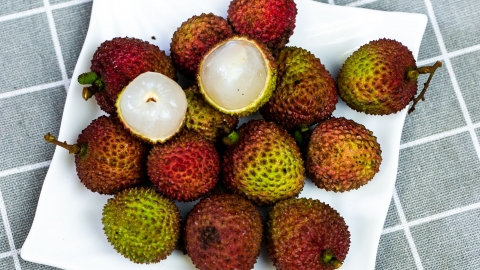Can a 10-month-old baby eat lychee?
Generally speaking, whether a ten-month-old baby can eat lychee should be determined based on specific circumstances. A small amount may be cautiously introduced if the baby has good gastrointestinal function and no history of allergies. However, it is not recommended if the baby has a history of allergies or weak gastrointestinal function. Detailed analysis is as follows:

If a ten-month-old baby has well-developed gastrointestinal function, no history of lychee allergy, and is in good health, the lychee may be peeled, pitted, and mashed into a puree for a small taste. Lychee contains nutrients such as vitamins and glucose, which can provide some nutritional benefits to the baby when consumed in small amounts. The smooth texture of the puree is also suitable for the baby's swallowing and digestion.
Babies allergic to lychee might experience allergic reactions such as skin rashes and rapid breathing after consumption, which could seriously affect their health. Since a ten-month-old baby's gastrointestinal system is not yet fully mature, the high sugar content in lychees may overload the digestive system if consumed in excess, potentially leading to discomforts such as bloating and diarrhea. Additionally, the tannic acid in lychees may interfere with the absorption of other nutrients, which is not conducive to the baby's balanced nutrition.
Feeding lychee to a ten-month-old baby requires particular caution. Consumption should be strictly limited. It is recommended that breast milk, formula milk, and other easily digestible complementary foods remain the main components of the baby's diet to ensure dietary safety and comprehensive nutrition.








